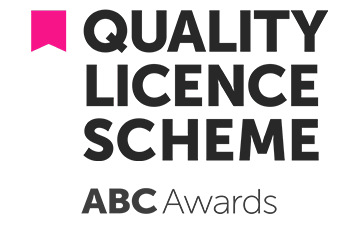FLASH SALE - 75% OFF All Courses
Use Discount Code: SA75 at checkout
SALE
ENDS:
Use Discount Code: SA75 at checkout
ENDS:
 Special Educational Needs (SEN) Advanced Diploma
Special Educational Needs (SEN) Advanced Diploma
Certified
Certified

Certified
Certified
This Special Educational Needs Advanced course is a progression from our Special Educational Needs course. The advanced course delves deeper into the theoretical foundation and prepares students even further to effectively work with children with special educational needs.
Students will learn the definitions and key principles of special educational needs, as well as the fundamental aspects of specific difficulties and disorders, from moderate learning disabilities to autism.
This course is ideal for those who have completed our teaching assistant courses and our Special Educational Needs (SEN) course. It is also suitable for those who simply have general interest in the topic and would like to deepen their understanding of working with SEN children.
Syllabus
Module One: Definitions and key principles of special educational needs (SEN)
At the end of this module, students will be able to:
- Outline a working definition of special educational needs referring to the law and what this means in practice
- Provide a brief explanation of the main theories of learning development
- Explain what personalisation is, how it is different from differentiation in learning, and how it may be beneficial to children with SEN
- Understand key principles of coaching and mentoring for children with SEN and how parents can assist, and be assisted, with supporting the learning process.
- Understand the different ways in which children with SEN can be monitored and assessed for outcome achievement.
Module Two: Moderate learning disabilities
At the end of this module, students will be able to:
- Outline the main ‘events’ throughout education history that have informed our current working knowledge defining moderate learning disabilities, and of educating children with these.
- Provide a brief explanation of the two models of disability, and explain ‘false opposition’ and its implications on the ways in which we educate children with moderate learning disabilities.
- Understand perceptions of, and attitudes to children with moderate learning disabilities, and how to make these more positive in the classroom.
- Understand the effects moderate learning disabilities can have on a child’s abilities to form long-term social relationships.
- Understand effective processes of assessing and identifying moderate learning disabilities.
Module Three: Autism
At the end of this module, students will be able to:
- Outline the condition of autism according to the triad of impairments and sensory problems, and understand how these might affect a young person’s learning.
- Explain some of the key psychological theories about autism.
- Provide a brief overview of a variety of interventions, including TEACCH that can be used at school to assist a child with autism in learning
- Help to assist with identifying the needs of a child with autism (strengths & weaknesses profile, SCERTS assessment process, self-assessment, pupil involvement)
- Discuss how teachers and assistants at school can assist parents and families with educational support of their child.
Module Four: Behavioural, social, and emotional difficulties
At the end of this module, students will be able to:
- Understand the difficulties a child may have around social skills and emotional competencies, and how this may affect them at school.
- Understand the government ‘social and emotional aspects of learning’ (SEAL) programme.
- Understand the principles of the five main psychological approaches to understanding behaviour
- Understand the ways in which genetic factors are understood to link with environmental factors and influence behaviour in children.
- Describe some of the therapeutic approaches that can be used to help children with behavioural, social, and emotional problems.
Module Five: Specific learning difficulties
At the end of this module, students will be able to:
- Understand the core features of the four main specific learning difficulties, dyslexia, dysgraphia, dyspraxia and dyscalculia.
- Explain the principles of good practice associated with teaching reading and writing
- Describe good practice approaches for teaching children with dyscalculia.
- Describe the ways in which dyspraxia can affect a child’s learning, and how certain teaching practices can assist the learning process.
Module Six: Speech and language, and global communication issues
At the end of this module, students will be able to:
- Describe the different aspects of speech, language, and communication issues that may be experienced by pupils, and which pupils may be more at risk of these problems.
- Describe typical speech and language development milestones.
- Understand the principles of Wave 3 interventions for SLCN, and how these can be made effective.
- Understand the principle of provision mapping, and how it can help children with SLCN
- Understand how to set targets and measure the progress of pupils with SLCN.
Module One: Definitions and key principles of special educational needs (SEN)
At the end of this module, students will be able to:
- Outline a working definition of special educational needs referring to the law and what this means in practice
- Provide a brief explanation of the main theories of learning development
- Explain what personalisation is, how it is different from differentiation in learning, and how it may be beneficial to children with SEN
- Understand key principles of coaching and mentoring for children with SEN and how parents can assist, and be assisted, with supporting the learning process.
- Understand the different ways in which children with SEN can be monitored and assessed for outcome achievement.
Module Two: Moderate learning disabilities
At the end of this module, students will be able to:
- Outline the main ‘events’ throughout education history that have informed our current working knowledge defining moderate learning disabilities, and of educating children with these.
- Provide a brief explanation of the two models of disability, and explain ‘false opposition’ and its implications on the ways in which we educate children with moderate learning disabilities.
- Understand perceptions of, and attitudes to children with moderate learning disabilities, and how to make these more positive in the classroom.
- Understand the effects moderate learning disabilities can have on a child’s abilities to form long-term social relationships.
- Understand effective processes of assessing and identifying moderate learning disabilities.
Module Three: Autism
At the end of this module, students will be able to:
- Outline the condition of autism according to the triad of impairments and sensory problems, and understand how these might affect a young person’s learning.
- Explain some of the key psychological theories about autism.
- Provide a brief overview of a variety of interventions, including TEACCH that can be used at school to assist a child with autism in learning
- Help to assist with identifying the needs of a child with autism (strengths & weaknesses profile, SCERTS assessment process, self-assessment, pupil involvement)
- Discuss how teachers and assistants at school can assist parents and families with educational support of their child.
Module Four: Behavioural, social, and emotional difficulties
At the end of this module, students will be able to:
- Understand the difficulties a child may have around social skills and emotional competencies, and how this may affect them at school.
- Understand the government ‘social and emotional aspects of learning’ (SEAL) programme.
- Understand the principles of the five main psychological approaches to understanding behaviour
- Understand the ways in which genetic factors are understood to link with environmental factors and influence behaviour in children.
- Describe some of the therapeutic approaches that can be used to help children with behavioural, social, and emotional problems.
Module Five: Specific learning difficulties
At the end of this module, students will be able to:
- Understand the core features of the four main specific learning difficulties, dyslexia, dysgraphia, dyspraxia and dyscalculia.
- Explain the principles of good practice associated with teaching reading and writing
- Describe good practice approaches for teaching children with dyscalculia.
- Describe the ways in which dyspraxia can affect a child’s learning, and how certain teaching practices can assist the learning process.
Module Six: Speech and language, and global communication issues
At the end of this module, students will be able to:
- Describe the different aspects of speech, language, and communication issues that may be experienced by pupils, and which pupils may be more at risk of these problems.
- Describe typical speech and language development milestones.
- Understand the principles of Wave 3 interventions for SLCN, and how these can be made effective.
- Understand the principle of provision mapping, and how it can help children with SLCN
- Understand how to set targets and measure the progress of pupils with SLCN.
FLASH SALE
75% OFF All Courses
Use Discount Code: SA75 at checkout
FLASH SALE
75% OFF
All Courses
Use Discount Code:
SA75
at checkout
Accreditation
This course has been accredited by Online Academies. On successful completion of this course you will be able to download or print off a PDF of your Online Academies Certificate (please note: you will also be given the opportunity to have a hard copy of the certificate printed off and posted out to you for a small additional charge). If you would like to view a sample of the certificate, please click here.

Online Academy work with Quality Licence Scheme (Quality Licence Scheme). The Quality Licence Scheme is part of the Skills and Education Group, a charitable organisation that unites education and skills-orientated organisations that share similar values and objectives. With more than 100 years of collective experience, the Skills and Education Group’s strategic partnerships create opportunities to inform, influence and represent the wider education and skills sector.
Assessment
At the conclusion of each module there is a multiple choice question assessment. This will help you remember the main points of the lesson and act as a check that you have retained the essential knowledge and understanding of that particular section. The results can be seen instantaneously and you can correct wrong answers. When the result is satisfactory you can progress to the next module.
Course Outcomes
Once you have successfully completed all the modules for your course you will be awarded:
A Diploma issued by Online Academies
 Newsletter
Newsletter
Be the first to get news and exclusive deals



